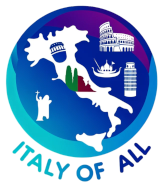The province of Firenze, or Florence, located in the heart of Tuscany, Italy, is globally celebrated for its profound impact on art, culture, and history. As the cradle of the Renaissance, Florence has been home to some of the greatest artistic and intellectual achievements in history, making it an essential destination for cultural tourism and scholarly pursuits.
Geographically, Florence is nestled in a scenic basin surrounded by hills that are dotted with villas, vineyards, and orchards. The Arno River runs through the city, adding to its charm and historically serving as a crucial waterway for commerce and daily life. The region’s landscape transitions from the lush, rolling hills of Chianti to the rugged Apennines to the north, providing a rich variety of natural beauty.
Historically, Florence’s origins date back to Roman times, but it rose to prominence in the medieval period as a free commune. It became a center of trade, finance, and eventually culture, under the rule of the Medici family, who were great patrons of the arts and learning. The city’s architecture, including landmarks like the Cathedral of Santa Maria del Fiore (the Duomo), the Uffizi Gallery, and the Palazzo Vecchio, stand as testaments to its storied past and Renaissance glory.
Culturally, Florence is a treasure trove of art and architecture, home to some of the world’s most famous works by artists such as Michelangelo, Leonardo da Vinci, and Botticelli. The city’s museums, churches, and galleries house pivotal works that have shaped Western art. Florence is also a center of literature, philosophy, and science, historically linked to figures like Dante Alighieri, Machiavelli, and Galileo Galilei. The Florentine dialect formed the basis for the Italian language, underlining the city’s influence on national identity.
Cuisine in Florence is quintessentially Tuscan, focusing on simple, high-quality ingredients. Signature dishes include “bistecca alla Fiorentina” (Florentine steak), “ribollita” (a hearty bread and vegetable soup), and “panzanella.” The surrounding Chianti region is famous for its superb wines, which are celebrated worldwide.
Economically, Florence’s economy has traditionally been based on art, culture, and tourism, which continue to be its main economic drivers. Additionally, the city and its region are known for craftsmanship in leather goods, high-quality textiles, and jewelry, which contribute significantly to its local and national economy. Florence has also developed a strong service sector and hosts numerous international students and academics, attracted by its educational institutions and rich scholarly resources.
Despite challenges such as managing the impact of tourism on its historic sites and urban environment, Florence continues to invest in the preservation of its cultural heritage while promoting sustainable and culturally respectful tourism practices.
Overall, the province of Florence offers a profound blend of artistic richness, historical depth, and cultural vibrancy. Its commitment to preserving its legacy while fostering innovation ensures its continued relevance and allure as a center of global cultural heritage.
Comuni in Florence Province:
- Borgo San Lorenzo
- Barberino di Mugello
- Bagno a Ripoli
- Barberino Val d’Elsa
- Castelfiorentino
- ** Calenzano
- Capraia e Limite
- ButeraButi, TuscanyButtapietra
- Campi Bisenzio
- Figline e Incisa Valdarno
- Fiesole
- Empoli
- Florence
- Dicomano
- Cerreto Guidi
- Firenzuola
- Certaldo
- Corzano
- Lastra a Signa
- Gesico
- Gambassi Terme
- Marradi
- Londa
- Fucecchio
- Impruneta
- Greve in Chianti
- Montespertoli
- Pelago
- Montelupo Fiorentino
- Montemignaio
- Montaione
- Palazzuolo sul Senio
- Rignano sull’Arno
- Pontassieve
- Reggello
- Rufina
- San Casciano in Val di Pesa
- Scarperia e San Piero
- Sesto Fiorentino
- San Godenzo
- Strozza
- Signa
- Scandicci
- Vinci
- Vicchio
- Vaglia
- Valchiusa
